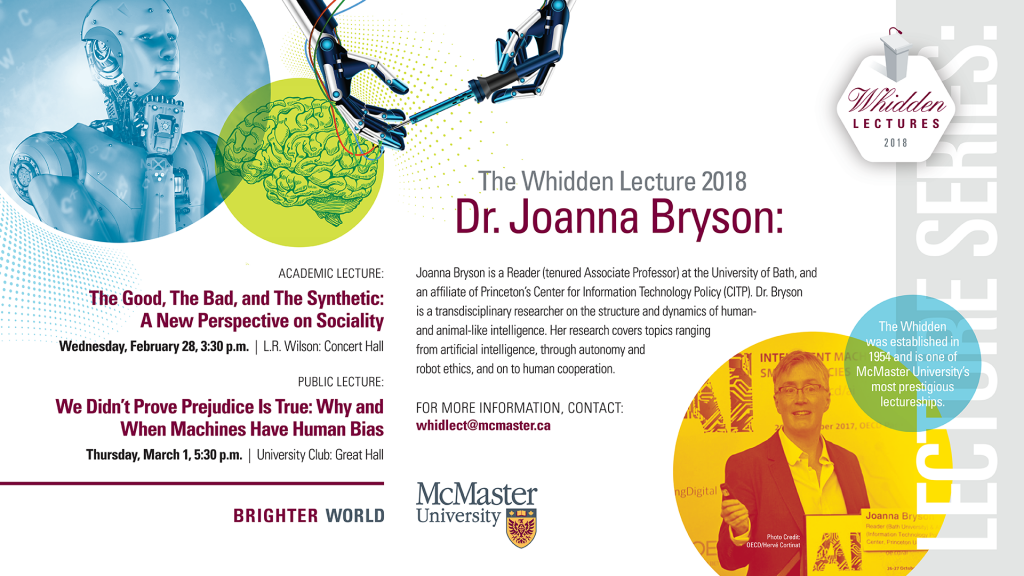Whidden Lecture: “The good, the bad, and the synthetic: A new perspective on sociality”
L.R. Wilson Concert Hall
28/02/2018, 3:30 pm
 McMaster logo
McMaster logo

L.R. Wilson Concert Hall
28/02/2018, 3:30 pm
Whidden Lecture 2018 with Dr. Joanna Bryson, University of Bath
Dr. Bryson is a transdisciplinary researcher on the structure and dynamics of human- and animal-like intelligence. Her research covers topics ranging from artificial intelligence, through autonomy and robot ethics, and on to human cooperation.
Why are some species more likely to use intelligence as a strategy than others? Why does reliance on intelligence as a strategy vary between individuals of the same species? Why are some people (but not most) willing to pay to punish someone who is giving them money? Why does the tendency for such punishment vary systematically by global region?
Can we build robots to be ordinary members of our society, with ethical rights and obligations similar to a human adult? Should we? Why do we want to?
The parallel pursuit of these very different research questions has recently converged to lead me to a series of answers that give a new perspective on ethics and morality, as well as a series of interdependent answers to all of the above questions. Variation occurs in nature where there are equally viable tradeoffs between incompatible solutions. In fact, variation is essential to robustness, that is, to finding new solutions to new challenges, so can itself be supported by natural processes. However, some traits work better together than others. Intelligence as a strategy is more likely to be rewarding with a high level of investment in individuals and a high amount of communication of discovered solutions, but such communication is a form of collaboration and requires a context in which public goods can be sufficiently beneficial. Language affords us an increased capacity for coordination and an increased probability of discovering mutually beneficial arrangements. Ethics is the means by which we keep societies together. Our current ethics does not well afford the inclusion of purely synthetic (deliberately designed and constructed) artefacts as equals, and I will argue it is unlikely that we could construct a coherent ethics in which that would not be true. If anything, we are already affording to many rights to artefacts we could better protect by other means. I will present a mix of published and unpublished work in support of these arguments.
A second lecture, “We didn’t prove prejudice is true: Why and when machines have human bias” takes place March 1 at 5:30 p.m. in the Great Hall room of University Club.